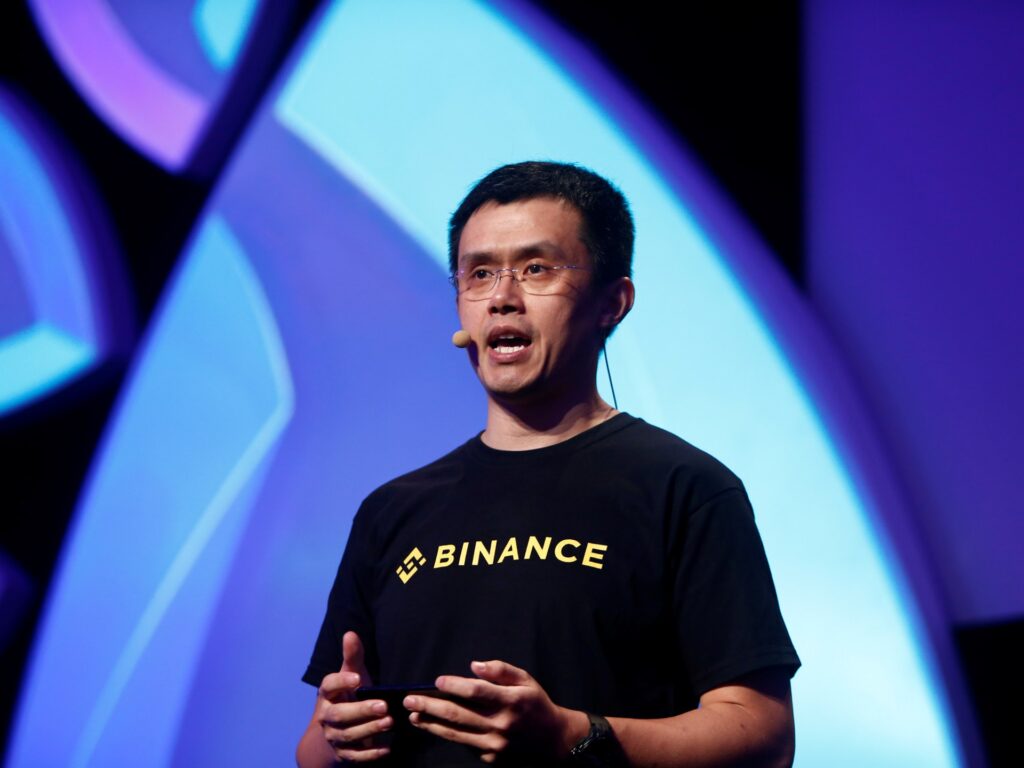He said the United States is turning a blind eye to child sexual abuse, illegal drug trafficking and transactions that support “terrorism.”
Binance's former chief executive Qiao Changpeng was sentenced to four months in prison on Tuesday after pleading guilty to violating U.S. money laundering laws at the world's largest cryptocurrency exchange.
The sentence was handed down by U.S. District Judge Richard Jones in Seattle, who rejected prosecutors' request for a three-year prison sentence for the 47-year-old Chao.
Chao, known as “CZ,” once considered the most powerful person in the cryptocurrency industry, is the second major cryptocurrency boss to be sentenced to prison, after Sam Bankman Freed. Bankman Fried was sentenced to 25 years in prison in March for stealing $8 billion from customers of the bankrupt FTX exchange.
Zhao pleaded guilty in November to failing to take necessary anti-money laundering measures and resigned after Binance agreed to pay $4.3 billion to resolve related allegations.
U.S. officials said Mr. Zhao deliberately turned a blind eye to people engaging in child sexual abuse, illegal drug trafficking and deals supporting “terrorism.”
“I failed here,” Chao said before U.S. District Judge Richard A. Jones handed down his sentence. “I deeply regret my mistake and am sorry.”
“I think the first step in taking responsibility is to fully recognize the mistake. Here I failed to put in place an adequate anti-money laundering program…I now realize the gravity of that mistake. ,” he said.
Prosecutors told the judge that a harsh sentence would send a clear signal to other would-be criminals.
“We are not suggesting that Mr. Chao is Sam Bankman Freed or that he is a monster,” said prosecutor Kevin Mosley. However, he said Mr. Zhao's actions were “not a mistake.” This was not a regulatory “oops.” ”
The three-year prison sentence sought by prosecutors was more than twice the guideline range for the crime. They argued that if he was not detained on that charge, no one would be and the law would be rendered ineffective.
Mr. Zhao was released on $175 million bail and agreed not to appeal any sentence within federal guidelines. Mr. Zhao also paid $50 million to the Commodity Futures Trading Commission.
Transactions that violate US sanctions
Binance had authorized more than 1.5 million crypto transactions totaling nearly $900 million in violation of U.S. sanctions, including those involving Hamas' Qassam Brigades, al-Qaeda, and Iran.
“He made a business judgment that this was the best way to attract users, build his company, and line his own pockets,” the Justice Department wrote in a sentencing memorandum filed last week.
Mr. Zhao's lawyers are willing to come to the United States to plead guilty from the United Arab Emirates, where Mr. Zhao lives with his family, despite the lack of an extradition treaty between the UAE and the United States. For this reason, he argued that no prison sentence should be imposed on him.
Defense attorneys Mark Bartlett and William Burke told the judge on Tuesday that no one has ever been sentenced to prison for similar violations of the Bank Secrecy Act, and Chao ordered Binance to comply with Bank Transparency Regulations before resigning. We started making changes to make it a model of compliance.
“There is no excuse for failing to establish the necessary compliance controls at Binance,” Zhao wrote in a letter to the court. “I wish we could change that part of Binance’s story. However, under my direction, Binance now has the most stringent anti-money laundering regulations of any exchange outside the United States. , those regulations have been in place since 2022.”
Prosecutors said no one violated the Bank Secrecy Act more than Mr. Zhao.
“In hindsight, he says he should have done a better job,” Justice Department attorney Kevin Mosley said in court. “This was not a mistake. When Mr. Zhao violated the BSA, he was well aware of its requirements.”
Prosecutors say Zhao knew Binance needed to institute anti-money laundering protocols, but instead told him to disguise the location of his customers in the United States to avoid compliance with U.S. law. The company is said to have been instructed to do so.
Several other crypto tycoons are also in the crosshairs of US authorities after the 2022 crypto price crash exposed industry-wide fraud and fraud.


